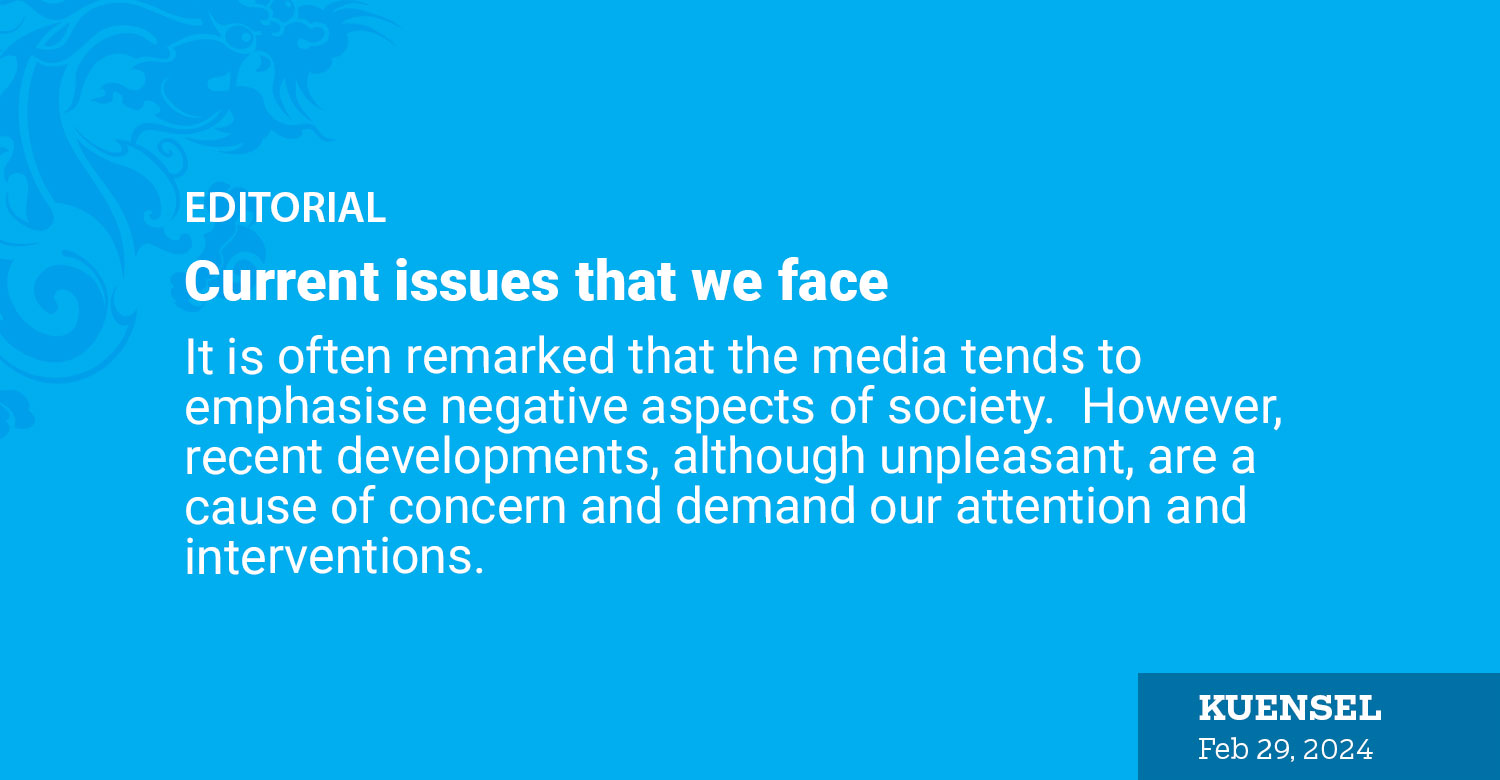It is often remarked that the media tends to emphasise negative aspects of society. However, recent developments, although unpleasant, are a cause of concern and demand our attention and interventions. The rise in cases of substance abuse, drug trafficking, even if it is attributed as a result of the special operations, violence, accidents and even butchering stolen animals during the auspicious month, are deeply concerning.
While these issues are frequently covered by the media and discussed by the public, they are often quickly forgotten. This superficial treatment is insufficient. What is needed is a deeper inquiry into the root causes of these problems. Why do some individuals in Bhutan steal and butcher cattle during sacred months? What drives young people to enter the drug trade? Why are road accidents on the rise despite knowing the causes?
We need to find answers and therefore solutions to the issues we are facing. Some are quick to attribute the problems to unemployment, while others point to inflation and the rising cost of living, both of which push people towards illicit means of making money. There is merit in both arguments.
For many, particularly in urban areas, the struggle is to secure basic necessities such as housing, food, and a decent income. When earnings fall short of covering these essentials, individuals may resort to quick but unsustainable sources of income. Additionally, societal pressures, such as expectations placed on children from low-income families, further exacerbate these challenges.
Bhutan is an expensive country, so say many, including those coming from Australia on breaks. Since the Covid-19 pandemic which disrupted the flow of goods that drove the price of goods and services, we could never bring down the price. While official statistics indicate a nearly 5 percent increase in the consumer price index, informal complaints highlight a steeper rise in the prices of essential goods, from eggs to cooking oil to onions and rice. Contrary to rumors, there has been no significant decrease in housing prices despite the supposed exodus of Bhutanese individuals to other countries.
What we need is policy interventions. While certain measures, like restricting the import of eggs to support local farmers, are in place, many essential goods remain unregulated, leaving them unaffordable for a significant portion of the population. It is imperative to ensure that essential items are priced reasonably to alleviate the financial burden on households.
Then we have the salaried people quitting jobs to live and work abroad. Even with a huge salary revision and restrictions on immigration, the exodus is not stopping. This trend signals underlying issues that must be addressed. It may not be palatable to decision-makers, but acknowledging and reporting on these challenges is essential for identifying and implementing effective solutions.
It is, therefore, imperative that we move beyond superficial discussions and address the underlying causes of the issues plaguing our society. Only through comprehensive analysis and targeted interventions can we hope to overcome these challenges and build a better future for all of us.


